Dr Lephoto
developing community through science

developing community through science
using innovation and skills development to bridge digital divide
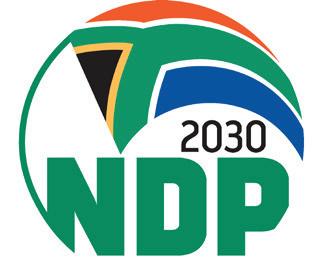
Celebrating International Mother Tongue Day
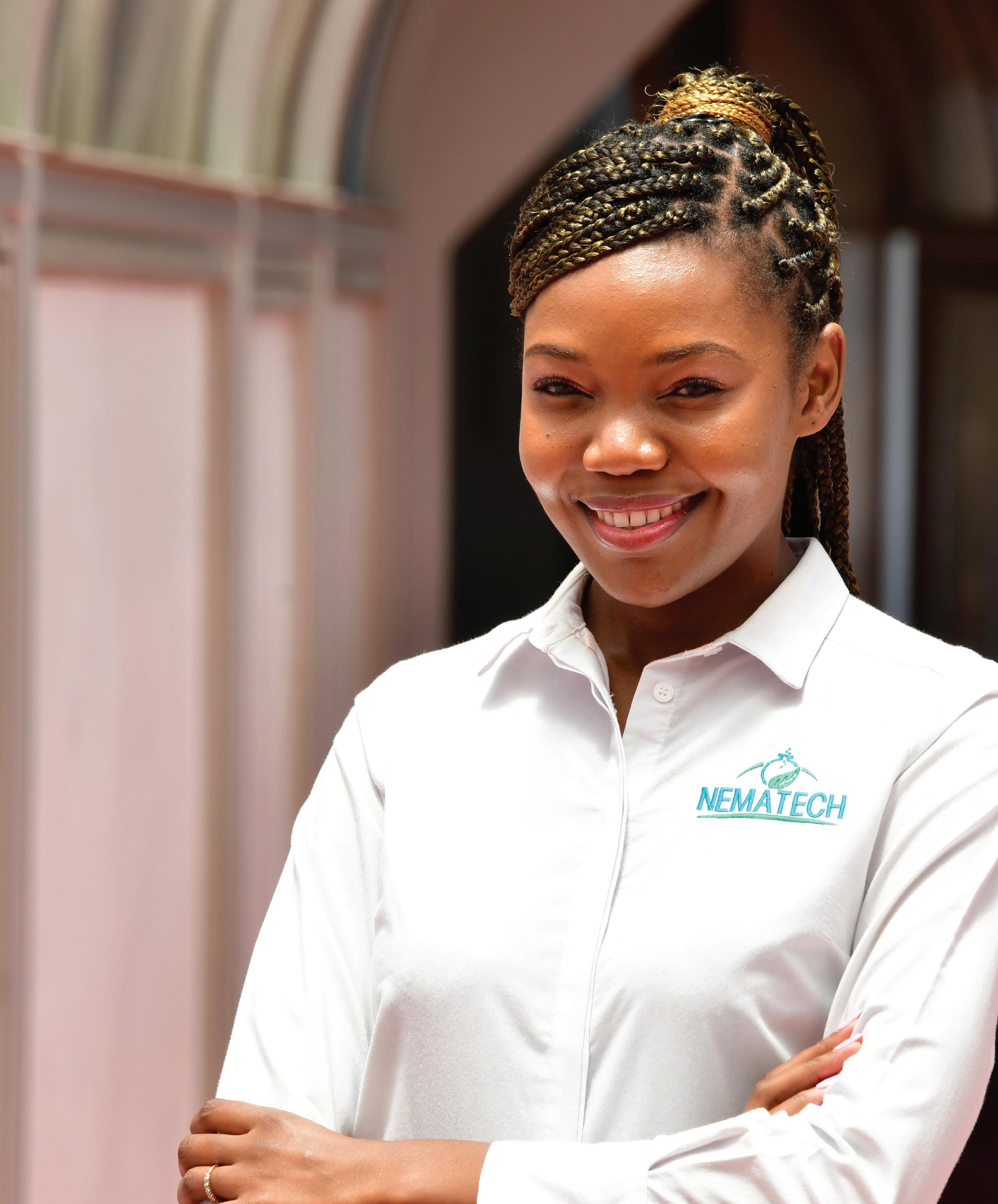
CEO
22 From the Union Buildings
We need to work more closely in the struggle for affordable electricity
24 SA's eDisclosure system used as yardstick to help other countries
Weeding out corruption across the continent
26 Minister urges South Africans to stand united against corruption

Ending corruption requires the commitment of all
28 Equal economic opportunities in the human settlements value chain
Building up women in the construction industry

South African company awarded major contract as part of SKA
Local economy to get a good view
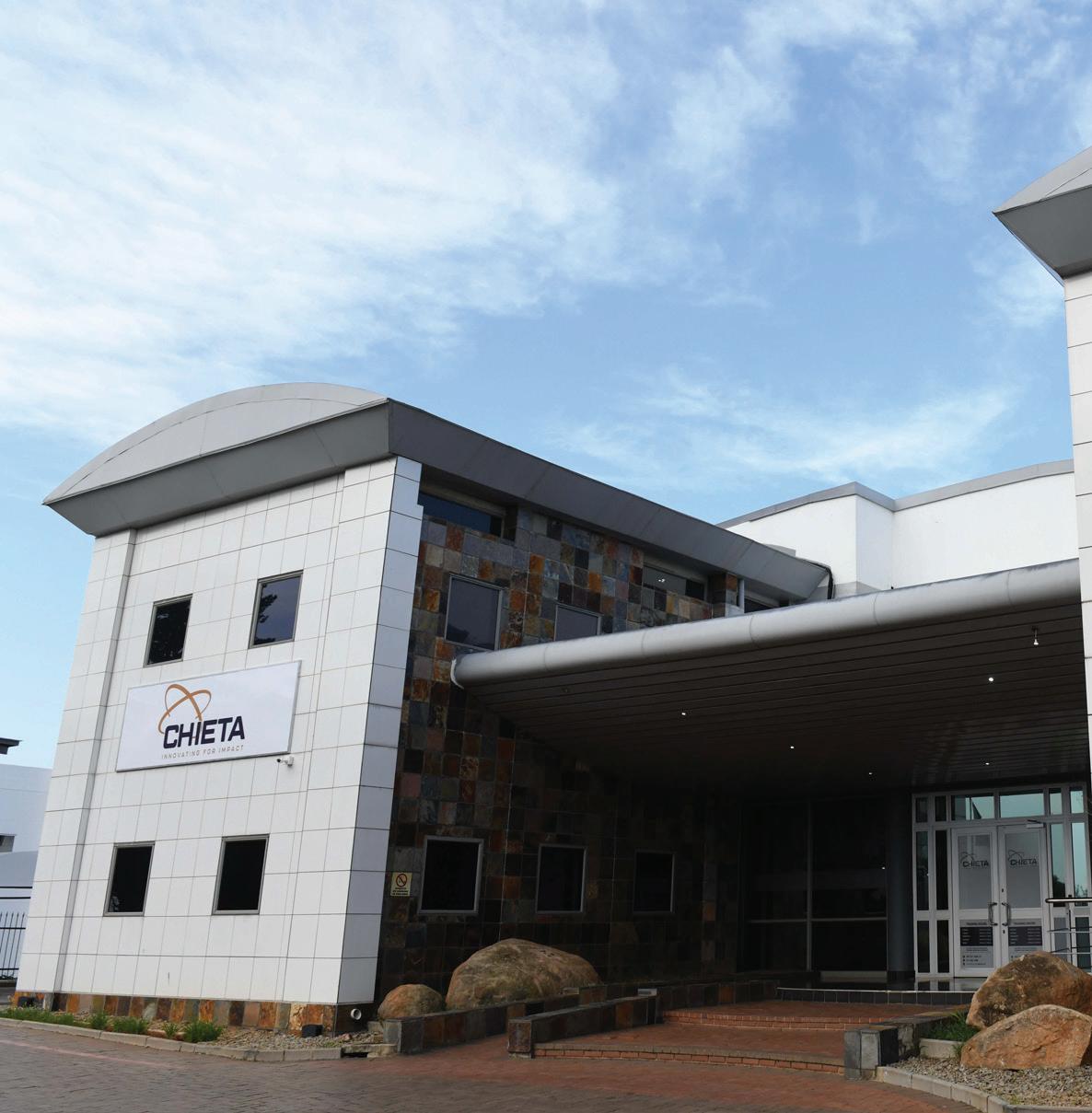





Anew year symbolises new beginnings; a time to set new goals and priorities. For us, as public servants, our resolutions should align with government priorities and plans to ensure that we fulfill our mandate to serve the people of South Africa, leaving no one behind.
We entered 2023 with some relief as the COVID-19 pandemic, which wreaked havoc in the past two years, now under control. We are, however, still recovering from the effects of the pandemic on the economy. Government has set targets and put measures in place to set the country’s recovery pathway. These include the Economic Recovery and Reconstruction Plan, which aims to build a new economy and unleash the country’s true potential – with the goal of creating a sustainable, resilient and inclusive economy.
To achieve these goals, public servants are expected to
pull up their socks and effectively execute their duties. We need a workforce that is ready and well equipped to imple -
ment and deliver government programmes.
One way to achieve this is the professionalisation of the
Public Service. In October 2022, Cabinet approved the National Framework Towards Professionalisation of the Public Sector. The framework is expected to contribute to the building of an efficient, capable and ethical state, free from corruption – one of the priorities of the 2019 - 2024 Medium Term Strategic Framework.
This priority puts forward a vision of strong leadership, a focus on people, and an improved capability to implement government plans. Achieving this will involve a transition to a more functional and integrated government; one that is capacitated with professional, responsive and meritocratic public servants.
President Cyril Ramaphosa has often stated that, “only a capable, efficient, ethical and development-oriented state can deliver on the commitment to improve the lives of the people of this country”.
The framework recommends five pillars in the value chain for the professionalisation of the public sector. These are:
• Recruitment and selection, which calls for the tightening of pre-entry requirements for middle and senior managers;
• Induction and onboarding, which calls for the orientation and induction of new employees to help them understand the culture and dynamics of the workplace;

• Planning and performance management, which calls for an alignment across public administration, reviewing of systems to make them fit for purpose and collaborating with
professional bodies, among others;
• Continuing learning and professional development; and
• Career progression and career incidents.
The framework also addresses the instability caused
by frequent changes of leadership in the public sector. As noted in the Report of the State Capture Commission, political and corporate interference has weakened some organs of the State. In some instances, Ministers bring changes each time they join a new department.
In his support message for the framework, President Ramaphosa notes that departments that have stable leadership often have positive audit outcomes and can account for public funds, while the same cannot be said about those that always change leaders.
To support this, the framework calls for the extension of the tenures of DirectorsGeneral (DGs) to at least 10 years, with thorough review of performance and clear exit clauses for poor performance.
Furthermore, the DG in The Presidency will be the designated head of public administration while in provinces this role will be held by DGs in the offices of the Premier.
Through the framework, government will position the public sector as a profession of choice with a career system based on meritocracy and an ethical disposition guided by the Batho Pele principles.
Let us view the framework as a pillar aimed at strengthening our sector and work together to ensure that it succeeds.
In the words of the President, “by working together, we can and will rebuild our country, we can and will improve our economy and improve the lives of our people”.
Photo: Desola Lanre-Ologun on Unsplash“President Cyril Ramaphosa has often stated that, “only a capable, efficient, ethical and development-oriented state can deliver on the commitment to improve the lives of the people of this country”.
Let me take this opportunity to welcome you to the new year and wish you prosperity. As we settle into the year, may we all renew our dedication and commitment to serve the people of South Africa, guided by the Batho Pele principles.
I would like to remind you that we are the channels through which government can implement it’s commitment to the people of South Africa to tackle the triple challenges of poverty, inequality and unemployment.
Let us work hard and become a public sector trusted by the people, not the one perceived as corrupt and lacking discipline. Last year, the Department of Public Service and Administration (DPSA) noted that the people of South Africa perceive public servants as corrupt, and contravening policies and regulations. They also felt that these actions go unpunished.
In November 2022, Public Service and Administration Acting Minister Thulas Nxesi revealed that 119 public servants were registered on the Central Supplier Database with the purpose to conduct business with the State. This is a contravention of Regulation 13 (c) of the Public Service Regulations, 2016, which prohibits public servants from conducting business with organs of state. Accord-

ing to Section 8 of the Public Administration Management Act, 2014 (Act 11 of 2014), it is a criminal offence for workers in the public sector and special advisors to conduct business with the State.
While the DPSA is in the process of drafting a discipline management strategy to address these concerns, the ball is in our courts to clean up the damage caused by some amongst us – by working hard and ethically. Let us continue to build on achievements made since the onset of democracy and make South Africa a better place.
On 9 February 2023, President Cyril Ramaphosa will deliver the 2023 State of the Nation Address. He will set out government’s key policy objectives and deliverables for the year ahead, highlight achievements, flag challenges and outline interventions to unlock development for the coming financial year. The
President will also highlight government achievements since his last address in 2022. These objectives are aimed at improving the lives of the people of South Africa. It is our duty, as public servants, to implement and deliver these programmes for the betterment of the country and the people we serve.
Let us be guided by the Batho Pele principles, which were recently reviewed, resulting in the Batho Pele Revitalisation Strategy. The strategy provides guidance and standards for government departments and give effect to a citizen-centred public service delivery programme that we should all follow.
Let us strive for excellence in executing our duties and adhere to the Public Service Pledge, in which we committed to serve the people of South Africa with loyalty, respect, dignity and integrity.

The Chief Executive Officer (CEO) of the Chemical Industries Education and Training Authority (CHIETA), Yershen Pillay, is creating a legacy of excellence, where innovation is at the centre of the organisation’s operations.

The CEO believes in innovating for impact, especially in poor and rural communities, and wants the CHIETA to lead in this area through skills development.
In 2022, the authority launched the first-ever SMART Skills Centre in Saldanha Bay, Western Cape to empower local youth and small, medium and micro enterprises (SMMEs) by developing their digital skills through tech-enabled learning programmes, such as virtual and augmented reality, robotics and the Internet of things among others.
The centre was created through a partnership with the Freeport Saldanha Industrial Development Zone (IDZ).
“The IDZ gave us an unu-
tilised building and we only spent R3 million on equipment and machinery in order to set up the centre within 11 months,” he says.
The authority also collaborated with the National Electronic Media Institute of South Africa and the Media Information Communication Technology Sector Education and Training Authority, which provide training and issue certificates to participants.
“This is South Africa’s first fully automated SMART Skills Centre. It was our pilot project, and we will now roll out the project across the nine provinces. Through these centres, we are trying to solve the deepening digital divide in the country between urban and rural communities,” says Pillay.
Saldana Bay was chosen because it has a lot of rural areas. Pillay says all the rural schools in the area have access to the centre, which is strategically
located at a central place. “None of these centres will be located in urban areas. We want to have one centre in each province by 2025 in order to bridge the digital divide,” says Pillay.
The centre has ten Internet training ports that have a laptop, free data or free WiFi services to help citizens access job opportunities, conduct virtual interviews, participate in skills programmes and apply for bursaries.
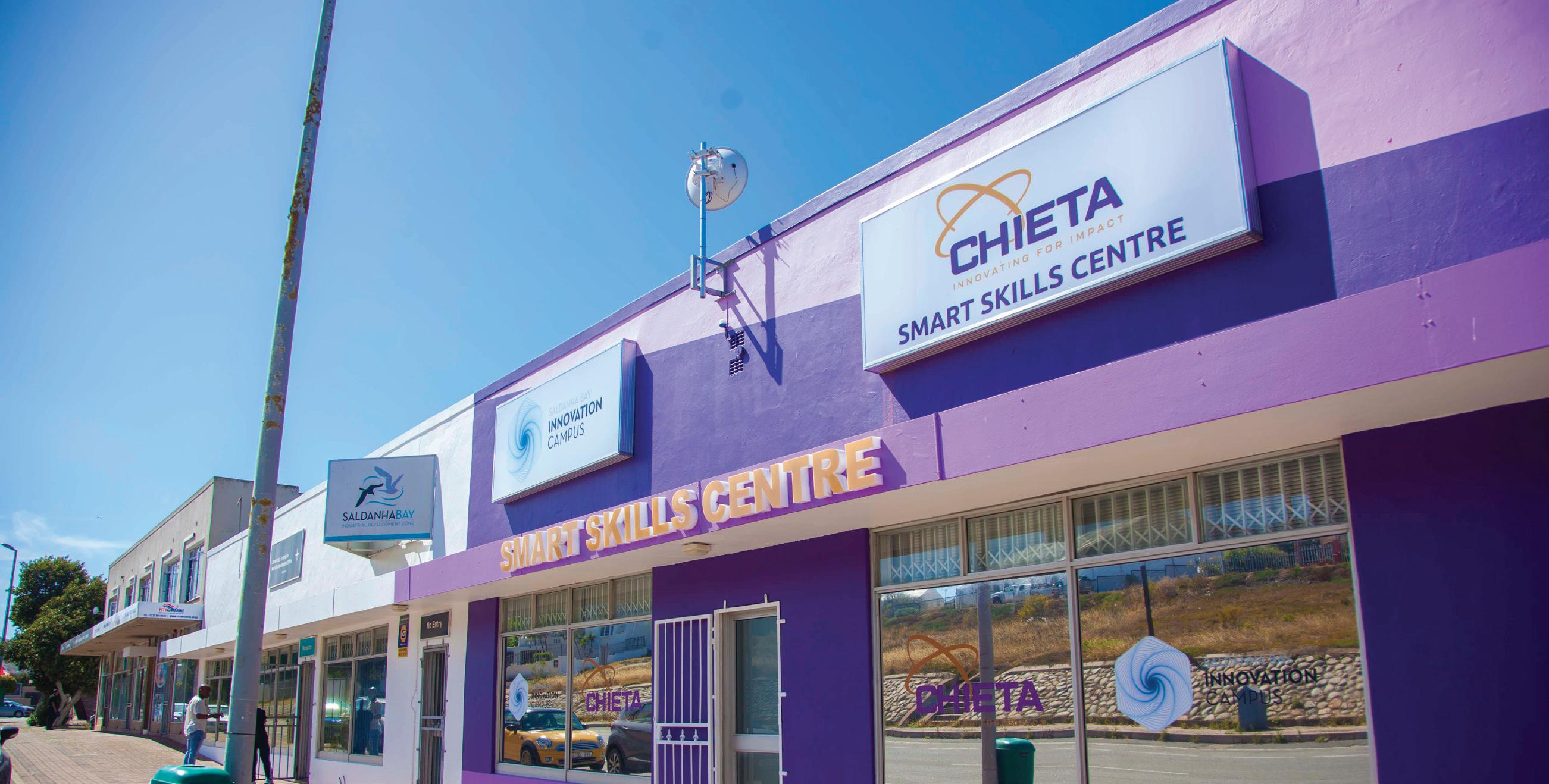
The centre offers free services – residents are only required to book a slot. “Out of the ten Internet training ports, three are for virtual reality, which can be used for the training of artisans. The centre has a digital boardroom, which SMMEs can use to have virtual meetings with their clients for free,” he says.
The second SMART Skills Centre will be launched in KwaZulu-Natal and the third one will be launched in the Eastern Cape. The centres are also expected to accelerate local innovation and enterprise capabilities, which will drive job creation and economic growth.
The authority has partnered with various local and international organisations with the aim of contributing to the Economic Reconstruction and Recovery Plan.
Due to the effects of the COVID-19 pandemic on the economy, many people with skills and competencies find themselves without work – and to address this, the authority in collaboration with the National Bargaining Council for
the Chemical Industry provide retrenched workers with a second chance by creating multiple streams of support, including upskilling or re-skilling, creating opportunities for small businesses and developing franchising opportunities in the industry.
In June 2022, the authority signed an agreement with the China Europe International Business School Africa to offer industry-related training.
The authority also works with Lesedi Youth Fund, which issues grants to address student debts in the chemicals industry.
“We get a database of students who have tuition debts and settle it through the fund. In 2021, we had about R16 million to settle student debts. We also funded work integrated learning worth R20 million
through the fund, where we trained artisans in our sector,” he says.
Pillays says In 2022, the authority provided training to 1 600 artisans, up from 1 068 in 2021.
With regards to fighting the scourge of corruption, Pillay says public servants should not just lead by example but need to set the bar high, where ethical standards are concerned. He says there must be zero tolerance to non-compliance.
“We need to be the beacons of hope for the country. We need to have strong consequence management,” he says.
Pillay describes himself as a development agent or activist.
He began his career journey at the University of Cape Town (UCT). While studying towards a Bachelor of Social Science (Political Science and Economics) at the UCT, he worked as a Student Governance Coordinator.
In 2009, Pillay was appointed as the Deputy Executive Chairperson of the National Youth Development Agency (NYDA), a position he held for three years. He was later appointed Executive Chairperson of the NYDA. This led to his appointment as the President of the Pan African Youth Union, where he served for two years.
His other qualifications include a Postgraduate Diploma
in Business Administration and Management and a Master’s in Business Administration (MBA) from the Gordon Institute of Business Science (GIBS). He was awarded the Top MBA Achiever Award for Trade in Africa GIBS, UCT in 2021. He is a also Certified Director by the Institute of Directors in South Africa.
Pillay joined the CHIETA in 2020 and says the transition from his previous positions was seamless.
“I have years of experience in executive management. At CHIETA, my key roles include performance management, strategy development and execution, formulating plan of
action for the strategy, providing stewardship and oversight performance of the organisation, ensuring that skills development is facilitated,” he says.
The authority has approximately 130 employees, and it operates in three regions –Gauteng, KwaZulu-Natal and the Western Cape because that is where more than 80% of companies in the chemicals industry are based.
As part of its mandate, the authority collects skills development levies from any chemical manufacturing company that earns more than R500 000 per annum through the South African Revenue Service.
The authority also funds train-
ing for SMMEs in the chemical manufacturing industry through the Entrepreneurship Development Programme.
“We have a target of training 2 000 SMMEs by 2025. In the past year, we funded the training of 100 SMMEs who completed a 12-month-long certificate in Entrepreneurship Development at the University of Johannesburg,” adds Pillay.
The CHIETA facilitates skills development in the chemical industries sector and ensures that skills needs are identified and addressed through a number of initiatives.

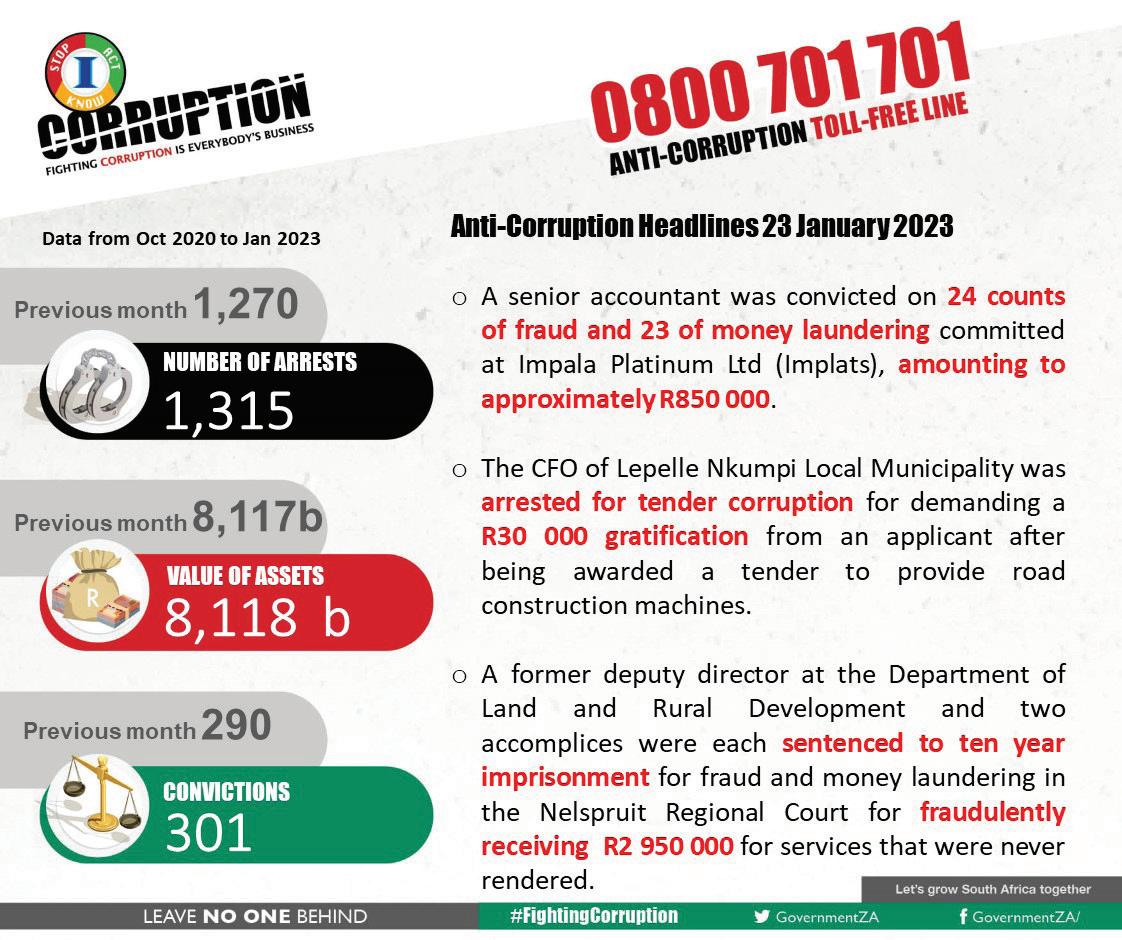
As a career professional in public prosecution, Advocate Xolisile Khanyile has been able to see the impact of financial crime through a variety of lenses. In 2018, when she was appointed Director of the Fi-

nancial Intelligence Centre (FIC), she was well-placed to steer the organisation toward progressing its fight against financial crime.
The FIC is mandated to identify the proceeds of crime and assist in combating money
laundering, as well as terrorist and proliferation financing. As South Africa’s financial intelligence unit, the FIC is the only entity authorised to receive transactions and other data from institutions that are listed
in the FIC Act, 2001 (Act 38 of 2001).
These include banks, real estate agents, money remitters and gambling institutions. The institutions are required to register with the FIC and sub -
mit regulatory reports, among other compliance obligations.
In 2021/22, the FIC received more than 5 million regulatory reports. The reports are interpreted and analysed as a precursor to the FIC developing products such as financial intelligence reports. In turn, the centre’s intelligence and other products are used by law enforcement, revenue services and other competent authorities for their investigations, prosecutions and applications for asset forfeiture.
Through the use of the FIC’s financial intelligence, more than R5.1 billion was recovered in 2021/22. In this way, the FIC plays a central role in the pursuit of crime and the criminal justice value chain, which is essential as the centre is not mandated to conduct investigations.
“Focusing on following the money is essential to uncovering individual and syndicated crimes and criminal behaviour,” says Khanyile.
“It is most crucial that we take away the business of crime, the profitability, from criminals,” she adds
Khanyile believes that nurturing collaboration and forging partnerships is an important aspect of fighting financial crime.
“I believe financial intelligence units across the globe cannot make inroads on the fight against crime on their own. We need to work collaboratively and cooperatively to build knowledge and increase capacity in the fight against financial crime,” says Khanyile.
It is this collaborative approach that Khanyile is also embedding at the Egmont Group of Financial Intelligence Units, to which she was appointed as Chair in July 2022. The Egmont Group, with a membership of 166 financial intelligence units, facilitates and prompts the exchange of information, knowledge and cooperation among its members.
One initiative that Khanyile is most proud of is the publicpublic collaboration of the Fusion Centre. This alliance of
law enforcement authorities
and investigative bodies in the Justice, Crime Prevention and Security Cluster and the FIC, has made significant headway since its work took off in 2020.
“As a collective of law enforcement agencies, the Fusion Centre has preserved and recovered approximately R1.75 billion in criminal assets, since its inception two years ago. Of this amount, at least R660 million was preserved and recovered in the previous financial year,” she says.

The FIC also championed the creation of the public-private partnership of the South Afri-
can Anti-Money Laundering Integrated Task Force (SAMLIT). The partnership is made up of the Prudential Authority of the South African Reserve Bank, 26 domestic and foreign banks registered in South Africa and banking industry representatives.
The purpose of the task force is to enhance the regulatory reporting regime by allowing SAMLIT members to have a coordinated, team-based and targeted approach in fighting financial crime. This allows the FIC to sit with several banks in one room with tactical operations groups (made up of SAMLIT members) and receive information from several banks on a specific matter.
Through the partnership, the FIC can receive a comprehensive, better and single view of the subject's suspicious financial transactions from several banks instead of a single transaction report emanating from one bank. This better view
allows the centre to submit detailed, comprehensive and actionable intelligence to law enforcement agencies. In this way, there is a close working relationship under the umbrella of SAMLIT and the Fusion Centre, allowing the Fusion Centre to speedily entertain comprehensive intelligence reports prepared by the FIC, emanating from the tactical operations groups of SAMLIT. The taskforce also has various expert working groups, which conduct research on specific crimes to develop trend analysis for use by the members. Three research projects
have been concluded – illegal wildlife trade, terror financing, and modern slavery and human trafficking.
In addition, through its partnership and collaboration, the FIC led the development of the National Risk Assessment on Money Laundering, Terrorist Financing and Proliferation Financing. Once published, this assessment will allow the country to reprioritise and focus its resources on combating the high-risk threats identified in the national risk assessment.

“Much good work has been done by the team that produced this document without outsourcing this huge task,” says Khanyile, adding that, “Some of the high risks identified in the assessment were the use of cash, corruption and bribery, tax-related crimes, fraud, cybercrime, illicit wildlife trade and environmental crimes, modern slavery, human trafficking and illegal mining”.
Khanyile is of the view that for the country to strengthen the fight against financial crime, there is a need to start building fit for purpose skills, such as forensic accountants, cyber experts, data technologists, financial investigators and analysts. “Half of the reported crimes in the country are financial crimes and our resources need to match our high risks”, she says.
She believes that it is the responsibility of every South African to play a role in the fight against corruption and in the implementation of the country’s national anti-corruption strategy.
Khanyile says the responsibility to fight corruption extends to all who work in the public service.
“It is our duty and obligation to be alert to and desist from engaging in corrupt activities. What we need to remember
at all times is that if we do engage in corrupt activities, the negative impact is felt by us all socially, economically and we all suffer due to the loss to the fiscus as a result”.
Despite the FIC’s achievements, Khanyile says a key challenge is for the FIC to retain its talent. Due to their technical abilities and skills, the employees are sought after by the private sector.
“In comparison to the previous financial year, the FIC experienced a significant increase in the number of voluntary resignations. This decreased the employee complement from 205 to 183, against the FIC’s approved establishment of 216,” says Khanyile.
Based on the FIC’s achievements, strategic initiatives and partnerships over the last few years, Khanyile believes she has created a legacy that will stand the centre in good stead now and in the future.
Khanyile holds a Master of Law degree from the University of the Free State, a Bachelor of Jurisprudence and Bachelor of Laws from the University of Zululand, as well as a Management Development Programme qualification from the Business School of the University of the Free State.

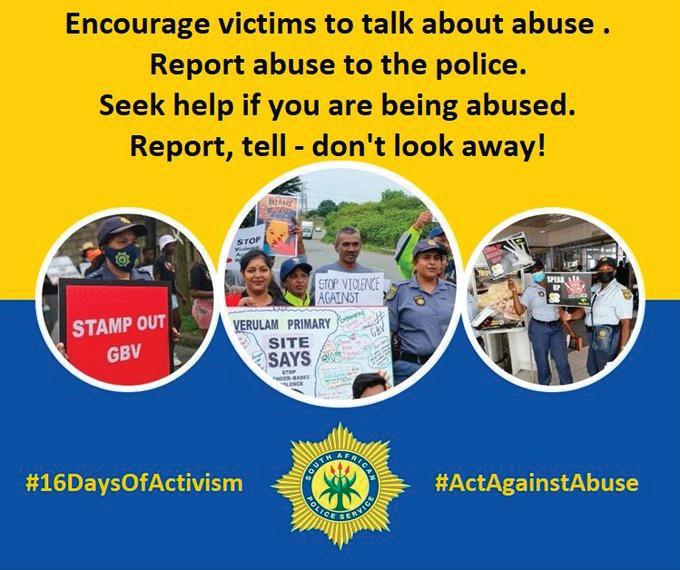
Ever thought academic life is boring? Young scientist Dr Tiisetso Lephoto is here to prove that wrong. Balancing her job as a lecturer and researcher at the University of the Witwatersrand (Wits) and running a foundation that empowers young scientists, Lephoto’s life is nowhere near boring.

The young scientist believes that innovation and technology have the potential to drive and grow the economy, and thus grow South Africa’s gross domestic product.
The 33-year-old academic graduated with a PhD in Nematology and Biotechnology, with an emphasis in Bioinformatics
and Microbial Genomics in 2016 – at the age of 26. Nematology is the scientific study of nematodes or roundworms, while biotechnology is the integration of natural sciences and engineering sciences in order to achieve the application of organisms, cells, parts thereof and molecular
analogues for products and services.
Currently, Lephoto is the Principal Investigator and Research Leader of the Nematology and Bioprocess Laboratory in the School of Molecular and Cell Biology at Wits.
“We all have the responsibility to do better in order to contrib -
ute positively in our societies. As an innovator myself, I highly recommend more public servants to innovate products that will truly positively impact our way of living,” says Lephoto, who was born and raised in Soweto.

As a lecturer and researcher, she believes that her job is im portant because she transfers knowledge to young aspiring scientists, and she motivates them. She teaches both undergraduates at all levels and postgraduates courses such as plant and invertebrate pathology, current topics in microbiology, application and complementary life sciences, among others.
“All these courses are important in helping students learn and understand how to solve societal problems using science. This implies that I contribute in the breeding of future scientists that will bring solutions to our world through scientific knowledge, research and application,” she says.
To date, Lephoto has supervised 30 postgraduate students, including one PhD, 12 Master of Science, and 17 Honours students, of which 24 have successfully completed their degrees and have graduated. She says the remaining six students are still studying at the university.
cides with an aim to service local and national farmers with
Products that were developed through Nematech include hairline repair oils, Afro Royal hair growth organic oils, organic hair butter, organic skin and hair products and are already in the market.
“We are about empowering people through training science graduates and unemployed youth. In 2022, Nematech hosted a two-day workshop that targeted 100 unemployed STEM [science, technology, engineering and mathematics] graduates and postgraduates who were presented with various opportunities in the field of science,” says Lephoto.
Nematech has a team comprising young black qualified professionals whose expertise is multi-sectoral across industries of agriculture, biotechnology, entrepreneurship and innovation as well as finance.
The foundation has so far created three permanent jobs and also employs part-time workers and welcomes volunteers.
Through the foundation, Lephoto is heeding government calls for individuals and companies to be part of creating jobs and building the economy. She encourages public servants to never
underestimate the power of their dreams, to work hard, believe in themselves and keep moving forward so that they impact other people’s lives positively.
As an extensively qualified and experience young black scientist, Lephoto leads the foundation with a vision of ploughing back to local communities and exposing regions outside South Africa to innovative products that contribute to socio-economic wellbeing and sustainable behaviours.
The foundation recently hosted a science graduate indaba, which was supported by the Gauteng Provincial Government, to expose unemployed science graduates to opportunities that government has and how to access them.

In 2006, Lephoto was one of the top learners in Soweto and her District.
“That set the tone for all my achievements to date,” she says.
She enrolled for a Bachelor’s of Science (BSc) at Wits before she turned 18 in 2007.
“While attending the welcome day with my parents, my father made interesting remarks about the red gown, what it meant and why I need to study further, and he thus encouraged me to
not leave the university without it,” she recalls.
In 2010, she enrolled for a BSc Honours in Genetic and Developmental Sciences focusing on throat cancer and the following year she enrolled for a Master of Science (MSc) degree in Microbiology and Biotechnology, focusing on insect pest management and biological control.
“While waiting for my MSc results, I had dually registered for a PhD programme, which I resumed in the middle of 2013, completed it in 2015 and graduated in March 2016. Of course, I went through challenges along the way associated with financial exclusion but I had destiny connectors and opportunities that enabled me to successfully complete my studies,” she says. She has received multiple scholarships, including the National Research Foundation excellence in science communication travel grant in 2019, Wits Faculty Research Committee research grant in 2020, the Wits Chancellor’s Female Academic Leader Fellowship 2021, and the National Research Foundation Thuthuka Research Grant in 2022.
As CEO of her foundation, Lephoto knew she needed business management skills to run it professionally. As such, she enrolled for a Master of
Business Administration degree with the University of Reading Henley Business School in 2019, focusing on brand management, marketing and strategy.
Lephoto has published 11 articles in international and nation science journals and recently submitted more than 10 articles which are currently under review.
Her love for anything agriculture started at a tender age of five years when she asked her parents to help her grow a vegetable and fruit garden at the back of her home in Soweto. She says she was disappointed
when the crops were affected by pests.
“Fast forward to 2007, when I enrolled for a BSc at Wits, all came full circle when I ended up in the field of biological control,” she says.
While she was doing her research on DNA methylation patterns in throat cancer cells, she came across an article that reported that one of the factors contributing to development of throat cancer is the consumption of chemical pesticide contaminated crops. She immediately felt the need to be part of the solution and grew passionate about biological control and innovation for advancement of agricultural practice, which led her to join the Nematology Laboratory in 2011.
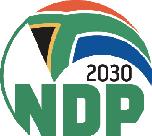






Scottburgh to Port Edward and inland to Harding, is one of the thriving tourist destinations in the country with various tourist attractions. South Coast tourism attractions include 11 quality golf courses, Blue Flag beaches, world-class dive sites, incredible outdoor adventures and cultural excursions.
region,” she says.
Mangcu is confident that with her extensive knowledge and experience in the tourism industry, she will resurrect the industry and draw in more investors.
Turning around the unfavourable circumstances of the burgeoning tourism industry and unleashing its full potential are among the top priorities for the recently appointed Chief Executive Officer (CEO) of KwaZulu-Natal's South Coast Tourism and Investment Enterprise (SCTIE), Phelisa Mangcu. Following the merger of Ugu

South Coast Tourism and Ugu South Coast Development Agency to create a public entity to promote tourism and spur investment for Ugu District Municipality, Mangcu made history when she became the first CEO of the newly created tourism entity.

The KZN’s South Coast, which stretches 120 km, from
While the area has great potential, Mangcu acknowledges some odds that have been stacked against tourism growth in the past few years.
"The onset of COVID-19, the 2021 July riots, the floods and ongoing water challenges, has made it incredibly difficult for tourism operators. But there are so many positive attributes along the KZN South Coast that continue to attract new and returning visitors to the
Having worked in the tourism industry in Washington, DC in the early 1990s, Mangcu brings a wealth of knowledge to the table. In 1999, she returned to the country where she took on a position in the tourism unit at Industrial Development Corporation, before relocating to Johannesburg Tourism.
She says the creation of the SCTIE marked a significant turning point in the development of the South Coast of KwaZulu-Natal because it brought together the knowledge and assets of two
organisations to create a more cohesive and practical vision. She plans to introduce new strategies to market the region’s tourism and investment offerings while eradicating barriers along the way.

Mangcu says she is committed to rural development initiatives. “As SCTIE, our role is to drive tourism and investment in the area by shining a spotlight on the many incredible attributes, from our Blue Flag beaches to our hinterland adventures, as well as the endless investment opportunities that can be found here. We are rebuilding and there is a lot of positive momentum in the local tourism industry.
“This is key to ensuring the tourism economy reaches the entire region and uplifts those
in marginalised communities,” she says.
Mangcu reveals that SCTIE has partnered with the Tourism Grading of South Africa (TGCSA) to conduct a quality assurance workshop to promote the recovery and development of rural tourism. The organisation will also partner with Tourism KwaZulu-Natal to raise awareness and allow for information sharing on tourism products and enterprise development opportunities.
Mangcu says that while the aim is to promote tourism, local communities would be at the centre of everything they do to ensure development and transformation. She adds that the entity also assists in the development of tourism Small, Medium and Micro Enterprises in rural communities, as well as training, skills development and business support.
"To inform locals about the nearby attractions from which they can also benefit, we collaborated with the KwaZuluNatal Department of Economic Development, Environment, and Tourism Affairs and held community awareness sessions. There are numerous [governmentl] funded programs that, in our opinion, will help locals support business development, funding requirements, and compliance standards for KwaZulu-Natal South Coast entrepreneurs."
The SCTIE recently launched agri-culture tours, opening up agricultural areas into tourism destinations. As part of the 2022 Heritage Month celebrations, the entity opened the exciting Umzumbe River Trail and the Ntelezi Msani Heritage Centre – a 70-km
Green Flag Trail where visitors explored the hinterland with overnight stays in authentic Zulu homesteads.
“This not only creates employment in the previously marginalised areas, but also provides visitors with a much more diverse tourism offering. These authentic cultural activities and unique outdoor adventures are exactly what visitors are looking for today, so we’re making sure we meet this demand,” says Mangcu.
The SCTIE prides itself in using various campaigns to market tourism attractions found along the KwaZuluNatal South Coast.
“We promote our products on both national and international platforms thanks to our participation in roadshows, exhibitions, workshops, seminars, and summits. This also provides valuable insight into current market trends and assists our tourism establishments in better packaging tourism products to meet existing needs,” adds Mangcu.
The KwaZulu-Natal’s South Coast boasts the highest number of Blue Flag beaches in the province, two worldrenowned dive sites at Aliwal Shoal and Protea Bank’s two iconic gorges – Oribi Gorge and Umtamvuna Gorge, as well as many outdoor adventures.
The recent announcement of an increase in electricity tariffs comes at an extremely difficult time for citizens and businesses alike, who are already contending with the high costs of fuel, food and other essentials.
It is in this context that I made
a call for the Eskom board to consider measures that can help to mitigate the impact of the 18.65% increase from an implementation timeframe point of view.
The new tariff was approved by the National Energy Regulator of South Africa (NERSA), following a prescribed process, which includes wide-ranging public consultation. It is important that we affirm the independence of NERSA and the importance of following the due legal process in setting tariffs.
Tariffs that reflect the cost of producing electricity are necessary for Eskom’s financial sustainability and for the utility to be able to service its debt and to undertake the critical maintenance that is needed to end load shedding.
Yet there is little doubt that increasing the price of electricity now, at this challenging time, will add to the difficulties South Africans are facing. Rising food and energy
prices are fuelling a cost of living crisis around the world, and the poor are being hardest hit. In South Africa, food prices have increased on average by 12% over the past year.
This is the problem we face: we have to ensure that Eskom has the resources it needs to resolve the electricity crisis while protecting South Africans from the effects of higher prices.
There is no simple answer to this problem. That is why all stakeholders, including government, Eskom, business, labour and communities, need to work together to achieve a very difficult balance. At all times, we must be guided by the needs and interests of South Africans, especially the poor, both now and into the future. We should be wary of short-term solutions that we will regret in years to come.
As government, we will continue to implement policies and measures to mitigate the

hardship being experienced by vulnerable citizens. Since the earliest days of democracy we have implemented a policy of free water and electricity for indigent households. The free basic electricity allowance, if implemented properly by municipalities, should shield the poorest households from the effect of the tariff increase. We remain absolutely committed to this policy.
Other programmes to expand the social wage include the provision of free primary healthcare, exempting learners from poor families from paying school fees, a school nutrition programme that supports over nine million learners countrywide, and the provision of free tertiary education for students from poor families. The zerorating of basic food products for VAT helps to decrease their
cost for the poor.
The National Minimum Wage, which was introduced in 2019, has improved the remuneration of many workers, especially farmworkers, domestic workers and other vulnerable workers.
Another means by which the State is supporting society’s most vulnerable from excessive price increases is through competition policy. During the pandemic, the Competition Commission used its powers to bring down the prices of COVID-19 tests and suppliers found guilty of overcharging for face masks were fined.
The Competition Commission monitors essential food prices, and recently found that consumers were facing ‘opportunistic increases’ in the prices of sunflower oil, a basic cooking staple for millions of households.
All of these measures provide an important ‘social wage’ that has helped to cushion poor households from the worst effects of rising prices. Government is considering additional mechanisms to address the rising cost of electricity. These include measures such as helping households and small businesses install solar power and energy saving devices, supporting households with rechargeable lights, and working with learners to catch up where load shedding interrupts lessons. We should be able to provide further information on these and other initiatives in the coming weeks.

As we work together to overcome the energy crisis, I call on all South Africans to pay for the electricity they use. We can only improve and expand the provision of electricity and
other basic services if government and municipalities in particular have the means to do so. Non-payment and illegal connections make electricity provision more expensive and less reliable.
The global cost of living crisis has been described as a once in a generation economic shock, and it is being worsened by global events that are beyond our control.
As government, we will continue with our efforts to expand the social wage, just as we accelerate our efforts to restore a reliable and secure electricity supply. We will continue to pursue closer cooperation with all social partners and public entities to find sustainable ways to shield South African households from the worst effects of rising energy and other costs.
South Africa’s electronic disclosure system (eDisclosure) continues to shine on the African map, following a second invite to share the invention with a neighbouring country.

In November 2022, the United Nations Office on Drugs and Crime (UNODC) invited the Department of Public Service (DPSA) to share the system’s experience with neighbouring Botswana. This followed an earlier invite to share the experience with Malawi in September 2022.
As the custodian of the system, the DPSA’s Public Administration Ethics, Integrity and Disciplinary Technical Assistance Unit (PAEID-TAU) shared information on the eDisclosure System with the Ethics and Integrity Directorate (EID) of Botswana. This was to ensure that the neighbouring country complies with the United Nations Convention against Corruption’s (UNCAC) requirements regarding asset declaration.
The UNODC is providing technical assistance to all members of the UNCAC to ensure implementation of the Convention. The PAEID-TAU was requested to present the eDisclosure system as a case study during the training session.
The UNCAC is a legally binding instrument adopted by the UN in 2003 and was ratified by 187 states. South Africa and Botswana are both signatories to this Convention. Botswana’s EID is mandated to manage the asset declarations of about 4 000 public officials, including public servants, politicians and judges. The PAEID-TAU also presented this case study to the Office of the Director of Public Officers Declarations of Malawi in September 2022.
A Director in the PAEID-TAU, Ms Pleasure Matshego, who developed the eDisclosure System explained that the system was developed in 2000 and gradually evolved
until it became an electronic system in 2016 to detect conflicts of interest.
The system allows designated public servants from level 9 to level 16 to disclose financial interests – annually for senior management service members and bi-annually for non-senior management service members.
Disclosure of financial interests is compulsory and is regulated by regulations 18 and 19 of the Public Service Regulations, 2016. Information that must be disclosed includes amongst others: properties, vehicles, business interests and other remunerative work.
The national and provincial
ethics officers scrutinise the submitted information and compare it to databases from the electronic National Traffic Information System, the Deeds Office, the Companies and Intellectual Property Commission and databases maintained by departments, such as gifts registers and the register for employees having permission to conduct other remunerative work.
By comparing information to external databases, available on the eDisclosure system, the information of public servants is verified for accuracy. This enables ethics officers to detect conflicts of interest

and provides them with a tool to perform lifestyle reviews and identify employees with unexplained wealth.
Matshego said with the element of lifestyle audits introduced, the South African financial disclosure system is currently adapting to become a dual declaration system that is similar to that of Botswana. Botswana’s EID and PAEIDTAU also shared insights on challenges experienced by newly established Anti-Corruption and Ethics units. This highlighted the need for ethics and integrity bodies in Southern African to work together to develop a sustainable model of ethics management for the region.
The system allows designated public servants from level 9 to level 16 to disclose financial interests –annually for senior management service members and bi-annually for non-senior management service members.Photo: Unsplash
ration of the International Anti-corruption Day, Public Service and Administration Acting Minister Thulas Nxesi emphasized the importance of partnerships between all sectors of the economy in the fight against the scourge.

“To achieve this, we must continue to foster anti-corruption partnerships with all sectors of society such as the private sector, civil society and academia to ensure that everyone is united in the resolve to eradicate corruption,” he said.
The Minister noted that corrosive consequences of corruption have caused great suffering and harm to the country and Africa.
South Africans must stand united against corruption and embrace account-
ability, transparency and good governance to realise the National Development Plan (NDP)
goal of eradicating poverty and increasing economic growth.
Speaking at the commemo -
“Corruption proliferates under conditions where the integrity infrastructure is weak and ineffective the successful application and implementation of laws is predicated on strong
leadership and the ability of leaders to set a vision, based on the rights, values and principles enshrined in the Constitution,” added the Minister.
“I don’t think that I would be alarmist to suggest that South Africa finds itself on the precipice of deep societal divisions caused by corruption and general malfeasance. Without a moral compass to place it on a path in which the aspirations of the Constitution and the creation of a truly capable, ethical and developmental state are realised,” he said.
Despite government efforts, the Minister said it must be acknowledged that the challenges regarding corruption have stubbornly prevailed and seem to continue unabated.
“We have seen an increase in the number of complaints reported through the National Anti-Corruption Hotline. During the 2021/22 financial year, a total of 1 563 complaints were reported through the hotline.
“Out of the 1 563 complaints reported, 479 relates to national departments, 324 relates to provincial departments and 760 relates to public entities,” he said.
The Minister revealed that as at 31 October 2022, 930 complaints had been reported through the hotline and re -
ferred to national and provincial departments as well as public entities for investigation.
The Minister pointed out that commemorating International Anti-Corruption Day presents the nation with the opportunity to reaffirm the commitment to eradicate corruption in the country.
“When we signed the United Nations Convention against Corruption on 9 December 2003, later ratified it, our government made a commitment and took a conscious decision that we shall not allow our country to be insidiously devoured by the scourge that is continuing to bedevil societies.” he said.
In 2018, Cabinet approved the National Anti-Corruption Strategy, which provides a framework and action plan for South Africa. The strategy is based on the principle that there should be prevention and combating of corruption through good governance, transparency, integrity management and accountability in society, and early detection

of potential corrupt practices to supplement the reactive measures executed by law-enforcement agencies and other anti-corruption bodies.
The collective effort of society and an integrated approach will help mitigate the risk of costly commissions of inquiry, forensic investigations and other legal processes.
In August 2022, President Cyril Ramaphosa appointed the National Anti-Corruption Advisory Council (NACAC), a multi-sectoral advisory body established to implement and monitor the anti-corruption strategy and render advice on the reports related to the Judicial Inquiry into State Capture.
Chaired by Professor Firoz Cachalia, the
NACAC has a three-year term and will ultimately pave way for the establishment of a permanent overarching entrenched national anti-corruption architecture (single agency) constituting government, civil society and business. The agency will be responsible for the implementation of the National AntiCorruption Strategy.
“Corruption is an evil that must be uprooted. Despite its obstinacy, we have made headway and we must remain optimistic, as even simple steps can move a country in the right direction,” added the Minister.
people with disabilities, and military veterans through skills development, job opportunities, and support of their businesses and entities,” said Booi.
More than five hundred women have participated in this programme since its inception. It was initially a four-month programme with networking and mentorship support.
As part of its Women Empowerment Programme, the National Home Builders Registration Council (NHBRC) partnered with the Gordon Institute of Business Science to develop a programme aimed at enhancing leadership potential and boost business skills for women in the construction industry.
The partnership, which started in 2014, saw 92 women entrepreneurs receiving their certificates after completing their 24-month training in December 2022.

“Through this programme, women entrepreneurs develop their entrepreneurial, business, and leadership skills which enable them to fully operate a
successful company,” said the Council in a statement.
NHBRC CEO Songezo Booi says the organisation's social transformation and empowerment programme seeks to address issues related to the advancement of equal economic opportunities in the human settlements value chain to optimise meaningful participation of vulnerable groups.
“Women are under-represented in the construction industry. We aim to bring about transformation by assisting women in developing their entrepreneurial skills, business skills, and leadership skills so they can fully realise and operate profitable businesses,” says Booi.
“We believe that our programme will assist in unlocking obstacles and boost women's empowerment. It will further assert measurable goals for us to achieve on the road to a radically transformed home-building industry,” said Booi.
The NHBRC said it will continue to support government initiatives for empowerment and access to economic opportunities.
“With this programme, the NHBRC demonstrates its commitment to the transformation agenda, and elevating the empowerment of women, youth,
It now entails training conducted by leading academics and key influencers in the industry, and is followed by a mentorship programme. Additionally, candidates develop comprehensive business plans and are evaluated for individual and company revenue growth.
The NHBRC, an agency of the Department of Human Settlements, is responsible for the protection of housing consumers and to regulate the home building industry. The council also offers services such as enrolment of new homes, home builder registration, home building inspections, builder training, geotechnical and materials engineering.


Source: DSI and SKAO
South Africa is set to benefit economically from the awarding of the Square Kilometre Array (SKA)Mid infrastructure contract as part of the construction of the mid-frequency components of the SKA telescope in Carnarvon

in the Northern Cape.
The SKA telescope will be the most advanced radio telescope on Earth when completed. Located at sites in South Africa and Australia, the telescope will explore the origins of the universe
among others.
Speaking at an event signalling the commencement of the on-site construction of the mega science project, the Minister of Higher Education, Science Innovation, Dr Blade Nzimande, wel-
comed the awarding of the contract – the largest to be awarded to a local company by the international SKA Observatory (SKAO).
"I wish to congratulate Power Adenco Joint Venture (Pty) Ltd, which has been
appointed as the successful bidder for the tender to build the major civils infrastructure, which includes a rollout of power, fibre and roads, and will be the biggest contract awarded by the SKAO to a South African-based company, amounting close to R890 million," said the Minister.
The telescope will be built at a cost of €1.3 billion and will be completed in 2028. The construction and operations of the telescope will be managed by the SKAO. As part of the commencement, €300 million worth of contracts awarded to companies across the SKAO partnership was announced, including the production of the telescope dishes and antennas and the major infrastructure work at the telescope sites.
South Africa has already constructed the 64-dish MeerKAT telescope/instrument that will eventually form part of the SKA-Mid telescope.

Dr Nzimande pointed out that local participation in the construction of the SKA-Mid telescope is a key requirement of the SKAO, making the awarding of the contract highly significant.
"A proportionate amount of the contract value will indeed be spent with local small, medium and micro enterprises (SMMEs), employment of local people, training and transferring skills to local people, supporting local businesses and implementing community development initiatives in conjunction with the SKAO and the South African Radio Astronomy

Observatory (SARAO)," said the Minister.
This contract is in addition to recently awarded contracts to SARAO and other South African companies, such as
Vivo
A total estimated value of contracts worth R1.2 billion have now been awarded to South African entities, with further contracts expected. Furthermore, it is expected that the leasing
of buildings to be constructed, and ongoing technical maintenance and operations of the SKAO for the next 50 years, will deliver long-term, sustainable foreign investment to South Africa.
The Minister congratulated the SKAO for delivering on its promise of ensuring that South Africa and other member countries get their fair share of returns, demonstrating that scientific projects can make positive socio-economic impacts.
Over and above direct foreign investment and indirect return on investment in the form of job creation, SMME development, human capital development, science tourism and other related benefits, South Africa’s membership in the SKAO will continue to enhance the country’s interna-
tional reputation as a partner and destination for science and technology investment and collaborations.
This return on investment is testament to the hard work done by South Africa over
the past 20 years. The local design, manufacturing and construction of the MeerKAT telescope by SARAO proved that the country has extremely competent technical and engineering capabilities.
The MeerKAT telescope, which will eventually be integrated into the SKA-Mid telescope, continues to receive scientific accolades from across the world for several amazing discoveries made since it was launched in 2018 – the latest being the Royal Astronomical Society's 2023 Group Achievement Award. Many of these discoveries have been delivered by the local astronomy community, which has grown exponentially and transformed over the past decade to become globally competitive.
The SKA-Mid telescope will ultimately see 133 dishes added to the existing 64dish MeerKAT telescope, totalling nearly 200 dishes. Most dishes will be concentrated in a core, with three spiral arms extending over 150 km.
The SKAO is an intergovernmental organisation that comprises countries from five continents and is headquartered in the United Kingdom.
Its two telescopes, each composed of hundreds of dishes and thousands of antennas, will be constructed in South Africa and Australia, and eventually be the two most advanced radio telescopes on Earth. A later expansion is envisioned in both countries and other African partner countries.
Together with other state-of-the-art research facilities, the SKAO’s telescopes will explore the unknown frontiers of science and deepen the understanding of key processes, including the formation and evolution of galaxies, fundamental physics in extreme environments and the origins of life.
The involvement of South African entities in the construction of the SKA project and the transfer of benefits through these contracts to the local communities is, but one of the many ways that the country will continue to realise the rewards of its involvement and investments in the global SKAO.


South Africa’s first-of-itskind Artificial Intelligence (AI) Institute will not only
but also contribute to economic growth.
In a statement, Cabinet noted that the institution, which was launched in November 2022, Africa’s digital transformation
“It will stimulate economic ployment and create a positive social impact. ing of robotics and

being offered in public schools,” Cabinet said. Speaking at the G20
Indonesia in September 2022, Communications and Digital Technologies Minister Khumbudzo Ntshavheni noted the importance of investing in the development of the youth
“It is essential that we provide our youth with access to modern training, skill sets and formal education. To achieve this, [the] Department
of Basic Education has introduced robotics and coding as school subjects in primary and high schools.
“At present, learners in over a thousand schools are designing and producing robots both for gaming and to complete tasks the learners find tedious for human completion.
“Next year [2023], learners in these and additional schools that will join this category will compete in a National Robotics Development Challenge,” said the Minister.
The AI Institute is a collaboration between the Department of Communications and Digital Technologies, Tshwane University of Technology and the University of Johannesburg.
“The institute is designed to ensure that government academia and industry work together in a unique partnership to apply their collective knowledge, expertise and experience to implement coordinated solutions to some of South Africa and Africa’s most critical and long-standing challenges, and to take the continent forward,” noted Cabinet.
Government’s focus on digital
skills includes creating platforms to support and promote the ability of youth, and small and medium enterprises, in particular start-ups, to develop digital content.
Founded upon the vision set out by the Presidential Commission on the Fourth Industrial Revolution, the institute positions itself as an adjacent innovation engine for public and private sectors. The institution’s website states that it intends to “generate knowledge and applications that will position South Africa as a competitive player in the global AI space.
“Al is the most transformative tool of our era. Its applications are ubiquitous across all sectors, enhancing production and services like never before.
Al might be poised to take over roles occupied by people, but the technology has the potential to actually enhance industry and address unemployment. It presents South Africa with the opportunity to re-skill the labour force for a digital future, whereby working collaboratively with machines will be the norm”.
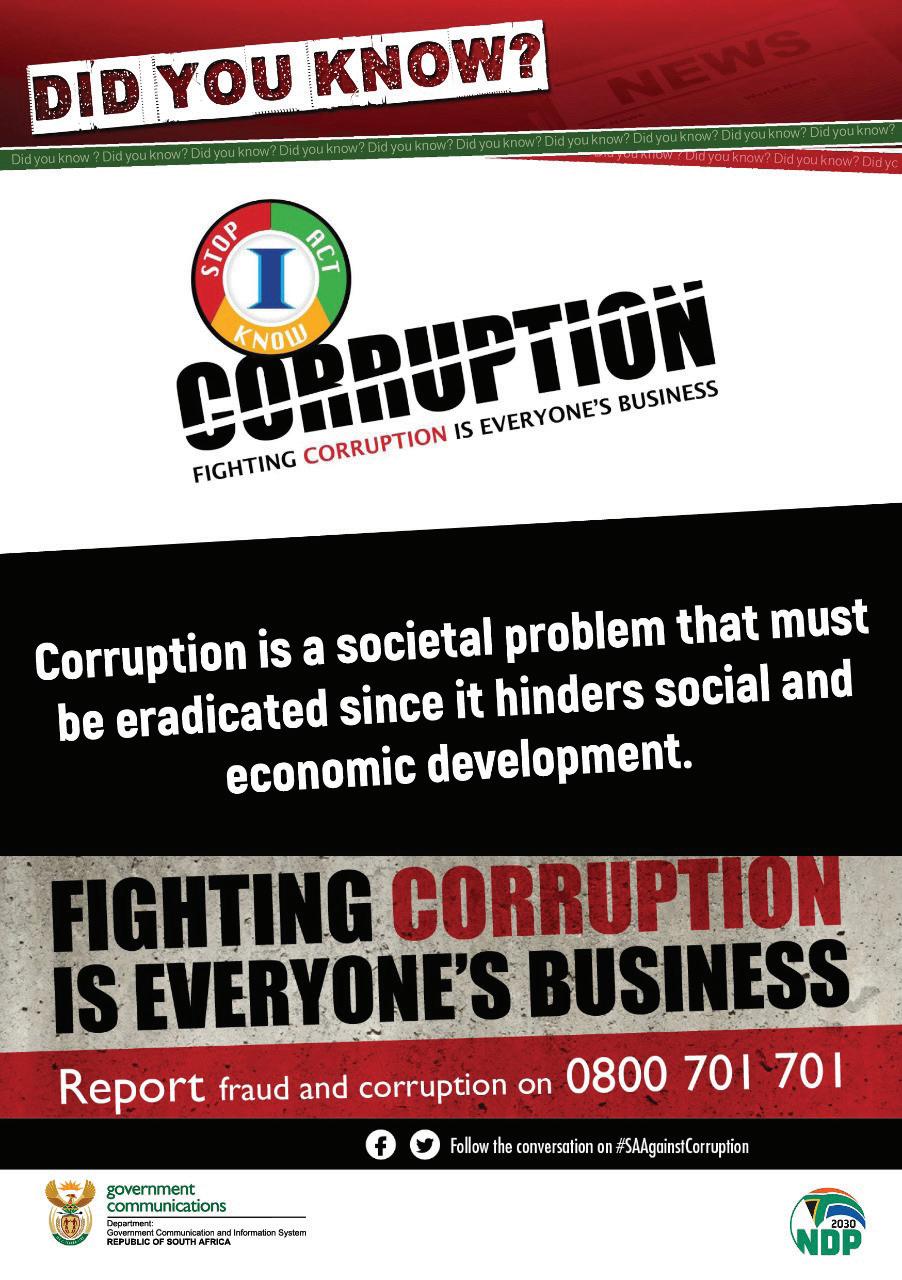
The 53rd Annual Meeting of the World Economic Forum (WEF) in Davos, Switzerland, concluded on Friday, 20 January 2023. World leaders and corporate executives expressed hope that the looming recession facing the global economy could be avoided if countries collaborated to boost global trade and investment.
A high-level South African government and business delegation has returned home from the meeting more upbeat than before that the current economic slowdown and rising

inflation could be resolved if nations addressed global supply disruptions that are leading to commodity shortages and driving up energy and food prices.
The delegation was led by Finance Minister Enoch Godongwana, accompanied by leaders of South Africa’s major corporations operating in various sectors of the economy. The delegation also included Trade, Industry and Competition Minister Ebrahim Patel; International Relations and Cooperation Minister Naledi Pandor and
This year’s event was held under the theme: “Cooperation in a Fragmented World” and covered many interconnected topics, including the impact of the ongoing Russia-Ukraine war on commodity markets, skyrocketing cost of living caused by rising inflation and monetary policy tightening by central banks, climate change, and the growing impact of artificial intelligence on workplaces and labour markets.
“The South African delegation did a fantastic job in Davos where it sold our country to global investors as a favourable market to do business and invest in. Notwithstanding the energy supply constraints that our country is currently grappling with, South Africa remains an attractive investment destination given its excellent infrastructure, sophisticated financial markets, and a skilled workforce,” says Brand South Africa Acting CEO Sithembile Ntombela.
The South African government is currently implementing structural reforms that have opened the energy sector to private investment to boost energy generation and bring an end to load shedding that is constraining the economy.
“The structural reforms that are currently being implemented by government are making progress in removing investment bottlenecks and reducing the cost of doing business. These reforms will enable South Africa, a preferred destination by local investors and global multinationals looking to expand across Africa, to take advantage of the opportunities presented by
the African Continental Free Trade Area (AfCFTA),” says Ntombela.
The AfCFTA, which officially launched in 2021, will create the world’s largest free trade area, stimulate intra-African trade, develop regional value chains and promote industrialisation across the continent.
The AfCFTA Secretariat and WEF revealed in a report unveiled at this year’s Davos meeting that the AfCFTA is projected to create a single market that will grow to 1.7 billion people and $6.7 trillion in consumer and business spending by 2030.
By 2050, the continent is estimated to be home to 2.5 billion people and a market with a combined business and consumer spending of $16.12 trillion.
The report titled; A New Era for Global Business and Investment in Africa lists four high-potential sectors that hold lucrative opportunities for companies looking to invest in Africa.
These sectors are automotive, agriculture and agro-processing, pharmaceuticals, and transport and logistics, which are all expected to see rapid
growth in terms of production and trade volumes under the AfCFTA.
“Given that South Africa is the most industrialised and sophisticated economy in Africa, it is well positioned to take advantage of opportunities presented by AfCFTA. The development of the free trade area will require massive investment in logistics and telecommunications infrastructure to reduce the cost of doing business and enable free movement of people, goods and services,” explains Ntombela.
With the green energy transition and digital transition in
full motion around the world, the delegation that represented South Africa at WEF 2023 expressed support for calls to reskill and upskill workforces, particularly the youth, to prepare them for future workplaces and to mitigate job losses.
The delegation is impressed by the progress made by the WEF’s Reskilling Revolution; an initiative launched in 2020 to empower 1 billion people. So far, the initiative has reached 350 million people.
Climate change also took centre stage at WEF with world leaders and business executives committing themselves to supporting the implementa-
tion of the Paris Agreement, which calls on all countries to cut carbon emissions to limit global warming to around 1.5 degrees Celsius and strive towards attaining net zero emissions by 2050.
This commitment requires countries and businesses to move away from using fossil fuel energy sources like coal and crude oil, and adopting clean and environmentally friendly energy sources such as wind and solar power.

The new Coalition of Trade Ministers on Climate, which brings together over 50 countries, was also a highlight of this year’s WEF.
The coalition aims to tackle climate change by promoting trade and investment that encourages the adoption of goods, services and technologies that mitigate climate change in both developed and developing countries.
“However, the global challenges that were highlighted at WEF 2023 cannot be resolved in a fragmented world in which countries are pulling in different directions. These challenges require collaboration and unity by the nations of the world, where countries are working together to find solutions in an integrated global economy,” concludes Ntombela.
The fight against prostate cancer – one of the top five cancers reported among men in South Africa, is being given another boost through the construction of a new state-of-the-art facility at
Steve Biko Academic Hospital (SBAH) in Pretoria.The setting up of the crucial unit emanated from collaboration between the University of Pretoria (UP) and the European Commission’s Joint Research

Centre in 2017 to offer services for prostate cancer to South African patients.
More than 300 South African prostate cancer patients have been successfully treated with Targeted Alpha Therapy (TAT)

through this collaboration.
According to the European Commission, TAT is based on the coupling of alpha particle-emitting radioisotopes to tumour-selective carrier molecules, such as monoclonal antibodies or peptides. These molecules can selectively target tumour cells, even if they are spread throughout the body.
“The treatment is offered to prostate cancer patients through compassionate use and improved protocols for patient treatment,” the Health Department said.
According to UP, other joint
Photo: National Cancer Institute on Unsplashstudies will lead to the development of TAT for other types of cancer, with a particular focus on breast cancer.

The Deputy Minister of Health, Dr Sibongiseni Dhlomo, has described the move as a signal to an important era of collaboration with the European Union (EU) to enhance healthcare research, as both parties jointly endeavour to “leave no one behind”.
Dhlomo thanked the SBAH team for the commendable research they have undertaken
over the past years in the area of nuclear medicine.
“I agree that the concept of nuclear medicine is not spoken about. However, nuclear medicine has played a critical role in the health sector over many years in the diagnosis of many ailments.
“It is quite encouraging to see how this practice has evolved over the years to play an increasingly important role in therapeutics as well. I am informed that there is a new area of radiation medicine called theranostics, which engulfs both diagnostic and therapeutic use of nuclear medicine,” Dhlomo said.
South Africa, the Deputy Minister said, continues to experience a quadruple burden of disease, including a high burden of HIV and AIDS, TB and an increasing burden of non-communicable diseases, of which cancer is a high priority.
“Nuclear medicine plays a critical role in enhancing our response to our complex burden of disease,” Dhlomo said.
He said cancer has become one of the leading causes of
death and suffering among communities in low and middle-income countries.
The top five cancers in men include prostate (25.29%), followed by colorectal (5.63%), lung (4.01%), non-Hodgkin's lymphoma (3.2%) and melanoma (2.74%).
In women, the top five cancers include breast (23.22%), cervix (15.85%), colorectal (4.46%), uterus (3.6%) and non-Hodgkin's lymphoma (2.55%).
“As we aim to create equity in access to care among all our communities, government has an obligation not only to ensure implementation of preventative strategies where applicable, but also to create access to early detection as well as appropriate and timeous treatment of cancers to improve our survival rates.
“It is also necessary for us to recognise the need for research and innovation to enhance treatment outcomes. I firmly believe that creating basic access to diagnosis and treatment can co-exist with our endeavours to be innovative,” said Dhlomo.
He expressed enthusiasm to learn more about the role
played by the new modality, an alpha-emitting Actinium-225 in the treatment of prostate cancer, which will contribute to reducing the burden of disease.
“I believe that the ongoing research collaboration between the Department of Health, the SBAH and our EU counterparts will help expand the use of this treatment modality to other types of cancer, such as breast cancer, in the future.”
He believes that the Nuclear Medicine Research Institute, having reached a construction completion stage at SBAH, will immensely contribute toward the realisation of this mission.
Dhlomo paid tribute to the hospital for reaching this milestone and recognised the outstanding research work done by Professor Mike Sathekge, the Head of the Nuclear Medicine Department at UP and SBAH, and his team.
Commending the development of the facility, the EU Commissioner of Health and Food Safety, Stella Kyriakides, said Europe and South Africa have a strong partnership through the development, manufacturing and access to COVID-19 vaccines in Africa and worldwide.
President Cyril Ramaphosa has called for the broadening of learner access to technical and vocational subjects in order to provide them with more choices and better guidance, as well as mitigate the dropout rate.
The President said providing learners with more choices and better guidance should make an impact on the number of those who drop out.
He said the improved matric results must encourage stakeholders in basic education to redouble efforts to address the extremely serious problem of learner dropout.
President Ramaphosa was delivering the keynote address at the Basic Education Sector Lekgotla at the Sandton Convention Centre, in Johannesburg, on 26 January 2023.

The three-day lekgotla was held under the theme: “Equipping Learners with Knowledge and Skills for a Changing World in the Context of COVID-19”.
“In many respects, the problem of learner dropout makes the theme of this year’s lekgotla even more relevant.
“The theme, which focuses on equipping learners with knowledge and skills for a changing world, raises the important issue of whether all learners who enter the basic education system are able to follow the educational paths that best suit them and their aspirations,” he said.
The President emphasised that the three-stream model –academic, technical vocational and technical occupational – is critical if the country is to adapt and thrive in the new world of work. The strategic objective of the model is to increase the quality and access to quality education through increasing learner access to technical, vocational and skills subjects and schools.
“The skills that our country needs, the jobs that can grow our economy, and importantly, the avenues for entrepre -
neurship that are so sorely needed, can best be achieved by increasing learner access to technical and vocational subjects.
“I am pleased to hear about the progress that we are making in institutionalising the three-stream model,” President Ramaphosa said.
Various technical vocational specialisations have already been introduced in more than 550 schools, and a growing number of schools are piloting the subjects in the technical occupational stream.
President Ramaphosa said subjects, including Agriculture, Maritime and Nautical Science, Electrical, Civil and Mechanical Technologies, are among the types of subjects he wants to see being offered at many schools.
“These are all vocations our economy sorely needs. They are the kind of vocations that we need to promote and develop if we are to tackle unemployment.
“The high numbers of unemployed young people is something no country can afford, but it is even worse if they are also not in education or training,” he said.
The President told the lekgotla that inclusive growth and shared prosperity can only be achieved when more people are working.
He emphasised that a productive workforce cannot be achieved if South Africa does not evolve into a nation committed to lifelong learning in various forms.
“If the economy is not creating enough jobs at scale to support the growing numbers of the unemployed, we have to think creatively and innovatively. This starts with developing skills for a modern and dynamic workforce through basic education.
“It cannot be emphasised enough that the greater the scope of basic education streams, the better our learners’ prospects are for securing
employment and for selfemployment after school,” the President said.
The President further lauded the class of 2022 for their remarkable 80.1% pass rate, despite the impact of lockdowns, school closures, learning disruption, curriculum trimming, rotational timetables and numerous hurdles.
“This year’s results, particularly the performance of learners from poorer schools, show the deepening impact of education spending and the social wage more broadly. We congratulate all the learners.
“The rising performance in poorer schools is like touching the Holy Grail. As we are improving particularly in poorer schools, results are becoming more and more positive. This is a sign of a revolution we always thought we want to achieve and I dub it 'touching the Holy Grail',” the President said.
The President also congratulated and thanked all those who contributed towards this outcome, including Basic Education Minister Angie Motshekga, and the respective MECs and their teams.
President Ramaphosa said the Lekgotla is one of the most important events on the country’s calendar.
Officials, educators, teacher unions, policymakers, the private sector and civil society use the platform to chart the course for basic education for the next 12 months and beyond.
“We know that education involves more than the skills needed to work; it is also about developing the capabilities needed to participate in a democratic society,” the President said.
He called for schools to become places that are free of corporal punishment, sexual abuse, gender-based violence,
racism, substance abuse and other ills.
The President said just as education fights inequality and poverty, improves a nation’s health outcomes, and contributes to economic growth, investment in quality education extends beyond learning itself.
“We are working hard to ensure that learners are able to receive education in dignified conditions that support their health and well-being. Through the Sanitation Appropriate for Education programme, known as SAFE, we have so far been able to construct 50 000 sanitation facilities at 2 388 schools,” he said.
A further 15 000 appropriate toilets were constructed at 1 047 schools as part of the Accelerated Schools Infrastruc -
“The Department of Basic Education assures me that all remaining SAFE sanitation projects at approximately 1 000 schools are scheduled for completion in the next financial year.
“We know that conditions of learning are seriously constrained in many of our schools by high learner-teacher ratios, amongst others. The burden of expectation on our educators to teach, do administration and meet the needs of their learners is stressful,” he said.
President Ramaphosa said the introduction of learning assistants in classrooms, as part of the Presidential Employment Stimulus, has been a blessing for many educators and schools.

The National Education Collaboration Trust (NECT) has developed 189 indigenous language storybooks to promote home language reading in foundation phase classrooms across the country. At least 21 titles have been developed in nine of South Africa’s official languages, namely Siswati, Setswana, Sepedi, Tshivenda, Xitsonga, IsiXhosa, IsiNdebele, IsiZulu and Sesotho. This comes ahead of the commemoration of Mother Tongue Day (21 Febaruary) – a reminder that linguistic diversity and multilingualism are essential for sustainable development.








The idea for the creation of these storybooks stemmed from the need to support teaching and learning in home languages, particularly in the early grades. According to the World Bank, children learn

more and are more likely to stay in school for longer if they are taught in a language that they speak and understand.
Basic Education Minister Angie Motshekga has previously noted that given the demographics of South Africa, more than 80% of children are taught in a language that is not their own.
Through the development of these 189 home language titles, the NECT is supporting the Department of Basic Education’s efforts to elevate home languages by providing reading resources that will support the teaching of reading and also promote reading for enjoyment.
“The stories should help learners identify with their personal, social and cultural
identities and they will also assist in bridging the gap between home and school,” said National Reading Coalition (NRC) Project Manager Bailey Nkuna.
The NECT’s reading programme manager, Dr John Thurlow said hard copies will be made and distributed to children in disadvantaged communities through the organisation’s focussed reading
programmes.
“We will also be disseminating them through a digital campaign with the aim of improving access to home language resources,” he added
The NRC's goal is to make age and content appropriate reading resources available to learners, teachers and parents.
The Department of Home Affairs, (DHA) has started the digitization process of converting over 350 million paper records into electronic format for improved service delivery. The DHA, in collaboration with the Department of Employment and Labour and Harambee
WHO CAN APPLY? (this will all be verified)
South African citizens aged between 18-35 years old
Youth Employment Accelerator as part of the National Pathway Management Network seek to contribute to the employment creation goals and strategic priorities of the Presidential Employment Stimulus programme by hiring unemployed youth on a fixed term contracts to assist.

Your qualification must match the minimum requirement of the role you are applying for No criminal record; and a clear credit history
Contracts will be for 36 months
Each role has different education requirements - these are available on the opportunity cards when applying on sayouth.mobi
Document Warehouse Controllers (16 Posts), Runners (240 posts), Preppers (735 posts) , Re-assemblers (734 posts), Receiving Clerks (100 posts), Scanners (125 posts) and Drivers (10 posts) – R5,000 per month Indexers (1600 posts) – R5,500 per month
Quality Controllers (200 posts) – R6,000 per month
Team Leaders (210 posts) – R6,500 per month
Tech Support (24 posts) – R9,500 per month
Managers (6 posts) – R14,250 per month

All roles will be at the Department of Home Affairs in Gauteng Province (Pretoria) and the North West Province (Brits).
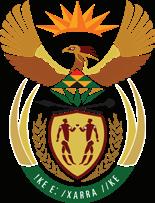
You can reach us Monday - Friday (9am - 4.30pm) :
0800 727272
support@sayouth.org.za
The site is zero-rated so free to visit Register - the process will take 4 mins.
Go to sayouth.mobi
If you have forgotten your password click “forgot password” to receive an SMS, if you have changed your number call 0800 727272
Once you’ve registered search for “Home Affairs”. If you don’t live in Pretoria or Brits remove your address before searching.
If you have already registered on SA Youth or Harambee you can just log in using the same log in details

SAYouth.mobi
HomeAffairsZA Department-of-Labour
On 21 February, South Africa will join the world in commemorating International Mother Tongue Day. But how does South Africa support the use of local languages?
The Constitution of the Republic of South Africa, 1996 gives a directive for the establishment of the Pan South African Language Board (PanSALB). The board’s mandate is to promote and create conditions for the development and use of all official languages, as well as the Khoi, Nama and San languages, and the South African Sign Language. It is also obliged to promote and ensure respect for
all languages commonly used by communities in South Africa. Furthermore, the Constitution recognises the historically diminished use and status of the nine marginalised South African indigenous official languages: Sepedi, Sesotho, Setswana, Siswati, Tshivenḓa, Xitsonga, isiNdebele, isiXhosa
and isiZulu. There is an obligation on the State to take practical and positive measures to elevate the status and advance the use of these languages. These obligations and the Use of Official Languages Act, 2012 (Act 12 of 2012) in essence fosters multilingualism within working spaces and beyond.
The United Nations General Assembly has proclaimed the period between 2022 and 2032 as the International Decade of Indigenous Languages, to draw global attention on the critical situation of many indigenous languages and to mobilise stakeholders and resources for their preservation, revitalisation and promotion.

To commemorate International Mother Tongue Day, and as part of the institution’s efforts to promote the use of mother tongue and further multilingualism in South Africa, the PanSALB launched Language

Activism Month on 1 February, 2023. The launch kickstarted various activities that will be conducted by the institution throughout the month.
International Mother Tongue Day 2023 is commemorated under the theme; “Multilingualism education, a necessity to transform education”.

The Constitution grants learners the right to receive education in the language of their choice. Most research suggest that learners entering school are able to learn best through their mother tongue, and that a second language (such as English) is more easily acquired if the learner already has a firm grasp of their home language.
However the question of mother-tongue education in South Africa remains a vexed one. While it seems reasonable and desirable that learners should be able to receive education in their mother tongue, there is still a long way to go to ensure that this is possi-
ble, given the scope of some subjects and the availability of study material in all levels of education.
“It is estimated that 40% of the population globally does not have access to an education in a language they speak or understand. Subsequently, more focus and emphasis will be placed on advancing the adoption of the Department of Basic Education’s Mother Tongue Based Bilingual Education (MTBBE) programme and fast tracking its roll-out in schools throughout the country” said PanSALB in a statement.
As part of the Language Activism Month Campaign Month, the PanSALB will hold a seminar in Limpopo, where delegates will discuss the rollout of the MTBBE programme in the province, followed by a celebration on International Mother Language Day.
“The two-day event will include the launch of 75 schools (25 for each indigenous African languages in Limpopo – Tshivenda, Sepedi and Xitsonga) that are starting the MTBBE
system wherein mother tongue is expected to play a crucial role as a language of teaching and learning to ensure the learners’ cognitive development,” added the board.
According to PanSALB, the “Language Activism Month campaign aims to create awareness of multilingualism as an important educational instrument that adds academic value and also promotes appreciation of cultural awareness and the preservation of indigenous languages”.

There is no better time than now to ensure that, as South
Africans, we communicate effectively and in a manner that promotes understanding. Citizens have the right to access information and it is critical that those entrusted with dispatching any information in the public interest do so with sensitivity of language.
The idea to celebrate International Mother Language Day was approved at the 1999 United Nations Educational, Scientific and Cultural Organization General Conference. The day recognises the importance of cultural and linguistic diversity for sustainable societies.
Every year in February, Speaker of Parliament invites the President of South Africa delivers the State of the Nation Address (SoNA) to the Joint Sitting of the National Assembly and the National Council of Provinces.
This year, President Cyril Ramaphosa will deliver the SoNA on 9 February at 19:00, at the Cape Town City Hall.
The SoNA sets out government’s key policy objectives and deliverables for the year ahead, highlights achievements, flags challenges and outlines interventions to unlock development interventions for the coming financial year.
During his address, President Ramaphosa is expected to highlight what has been achieved by the sixth administration since his last address in 2022. The SoNA is also an opportunity for government to redouble efforts to build a better future for all.
This is what young public servants would like to hear more about during the President’s address:
Reatlegile Ratlagane, an Intern in the Media Relations unit at the Department of Basic Education, says she expects
to hear more on what the nation’s plans are to address the energy crisis, the effects of the COVID-19 pandemic and an update on the economic recovery plan.
“I would like to hear about measures that the government together with Eskom will implement to improve the current critical condition of energy generation. Many businesses have not yet recovered from COVID-19 and many others are now closing down because of load shedding.
“The COVID-19 pandemic has contributed to a rise in poverty. I would like to know government plans on creating more job opportunities as well as helping the economy recover. In addition, I am expecting to hear about other issues such as education, safety and security and Gender-Based and Femicide (GBVF)”.
Funeka Zondo, a Communications Intern at the Department of Women, Youth and

Persons with Disabilities, expects the President to address challenges in the education sector.
“Education is one of the most significant issues in South Africa. A nation cannot advance without a well-educated population”.
Matshidiso Lemao, Media Relations Intern at the Department of Basic Education, expects the President to address the high rate of youth unemployment.



“The biggest question for me is what is government
doing to come up with ways that will help drive and move the economy of the country forward post-COVID-19?
“One of the main issues that must be addressed is the
instability of Eskom, we are currently witnessing small and medium-sized businesses being forced to shut down because of load shedding.
“We as the youth would also
like to see more young people being absorbed into workforces without experience, so that they can grow, gain experience and learn on the job”.

“Idon’t have anything to wear” is something we have all said at some point whilst looking at a full wardrobe. A quick and clever fix is to make sure we have pieces that can compliment each other and allows us to play around and mix and match outfits. We have selected a few pieces that will allow you to make your outfit choices in the morning easier.









Nothing says, “I love you!” like a meal made from the heart. This month of love, we have put together a great and easy menu that will be quick, easy and impressive for that special person in your life. Paired with your favourite wine, this meal will be food for your soul.
Prawns

*Courtesy of www.delicious.com.au
Ingredients:
• 12 large king prawns, peeled, butterflied (tails intact).
• 2 tablespoons extra virgin olive oil.
• 125g unsalted butter,
chopped.
• 10 curry leaves.
• Juice of 1 lemon.
• 1 ½ tablespoons brown mustard seeds.
Turmeric Pickle
• 100g turmeric, peeled, thinly sliced
• 1/4 cup castor sugar
• 1/4 cup white vinegar
Instructions
• For turmeric pickle, place turmeric in a heatproof bowl and set aside.
• Place sugar and vinegar in a small pan over medium heat, stirring until sugar dissolves.
• Bring to the boil, then remove from heat and pour over turmeric. Set aside to cool. Toss prawns with oil and season.
• Heat a chargrill pan over high heat. Cook prawns, turning, for 3-4 minutes until just cooked through. Place
on a serving platter.
• Melt butter in a saucepan over medium heat. When the butter starts to foam, add curry leaves and cook for 2 minutes or until butter has browned and curry leaves are crisp.
• Stir in lemon juice and mustard seed, then pour over prawns. Spoon turmeric pickle over prawns and serve.
Tuscan Chicken in Parmesan Cream Sauce

*Courtesy of www.thecookierookie.com
Ingredients:
For the chicken:
• 4 large chicken breasts lightly pounded to even thickness.
• 1 teaspoon Italian herbs.
• Salt and pepper.
• 4 tablespoons flour.
• 3 tablespoons grated parmesan cheese.
• 2 tablespoons butter.
For the Sauce
• ¼ cup Butter.
• 4 garlic cloves minced.
• 1 cup sun-dried tomatoes drained and rinsed.
• 1 tablespoon flour.
• ½ cup heavy cream.
• 1 cup low sodium chicken broth.
• ½ cup parmesan cheese grated or hand shredded.
• 1 teaspoon Italian herbs.
• ¼ teaspoon black pepper.
• 1 cup baby spinach chopped.
• Fresh parsley for garnish.
• Season each side of each pounded chicken breast with Italian seasoning and salt and pepper.
• Combine flour and grated parmesan in a shallow bowl. Dredge each chicken breast in the flour mixture, coating both sides.
• Heat a large skillet over medium high heat. Add the 2 tablespoons butter and stir/ melt. Cook the chicken (in batches if necessary) for 4 to 5 minutes per side or until its fully cooked (165°C in the center and no longer pink) and browned on both sides.
• Remove from the skillet and place on a plate.
• Cover with foil. Wipe the skillet clean and return the skillet to medium high heat and add the remaining ¼ cup butter.
• Use a wooden spoon to scrape the bottom of the pan as the butter melts. The brown bits hold a lot of flavor, so no need to remove.
• Add the garlic and sun-dried tomatoes and cook for 1 to 2 minutes or until fragrant.
• Whisk in the flour and allow to thicken for approximately 1 minute.
• Whisk in the heavy cream, chicken broth, parmesan cheese, Italian seasoning, and pepper. Stir to combine. Add the spinach and reduce
heat to simmer.
• Allow to cook until the sauce slightly thickens and the spinach wilts. Add the chicken back into the skillet and turn to coat in the sauce.
• Allow to simmer until the chicken is heated through, 2 to 3 minutes.
• Garnish with fresh parsley. Serve with rice or couscous.
Chocolate Soufflé with Chocolate Sauce

*Courtesy of www.taste.com.au
Ingredients:
• 60g butter.
• ¼ cup plain flour.
• 1 cup milk.
• 1 teaspoon vanilla extract.
• 175g dark chocolate (70% cocoa solids), finely chopped..
• 5 egg yolks
• 50g castor sugar.
• 1 tablespoon Grand Marnier (Orange Liqueur).
• 6 egg whites. Double cream, to serve
Chocolate sauce:
• ¼ cup brown sugar.
• 1 cup pouring cream.
• 40g butter.
• 180g dark chocolate (70% cocoa solids), finely chopped.
Instructions:
• Preheat oven to 200°C. Butter 8 x 150ml soufflé or
ovenproof dishes.
• Melt butter in a heavy-based saucepan over low-medium heat, stir in flour and cook for a few seconds. Remove from heat. Gradually whisk milk and vanilla into flour mixture until smooth. Add chocolate and whisk until melted. Do not worry if the mixture separates a little.
• Using an electric mixer, whisk yolks and half the
sugar until thick and pale.
• Add chocolate mixture and liqueur. Stir well.
• Using an electric mixer, whisk whites and a pinch of salt to soft peaks. Gradually add remaining sugar and whisk to stiff peaks. Carefully fold whites into chocolate mixture in 2 batches until just combined.
• Spoon into dishes (mixture will fill dishes) bake for 16 to
18 minutes or until puddings are well risen.
• For sauce, combine ¼ cup water, sugar, cream and butter in a small pan. Stir over medium heat until sugar dissolves. Stir in chocolate until melted. Serve puddings immediately with chocolate sauce and double cream passed separately to spoon into the centre.
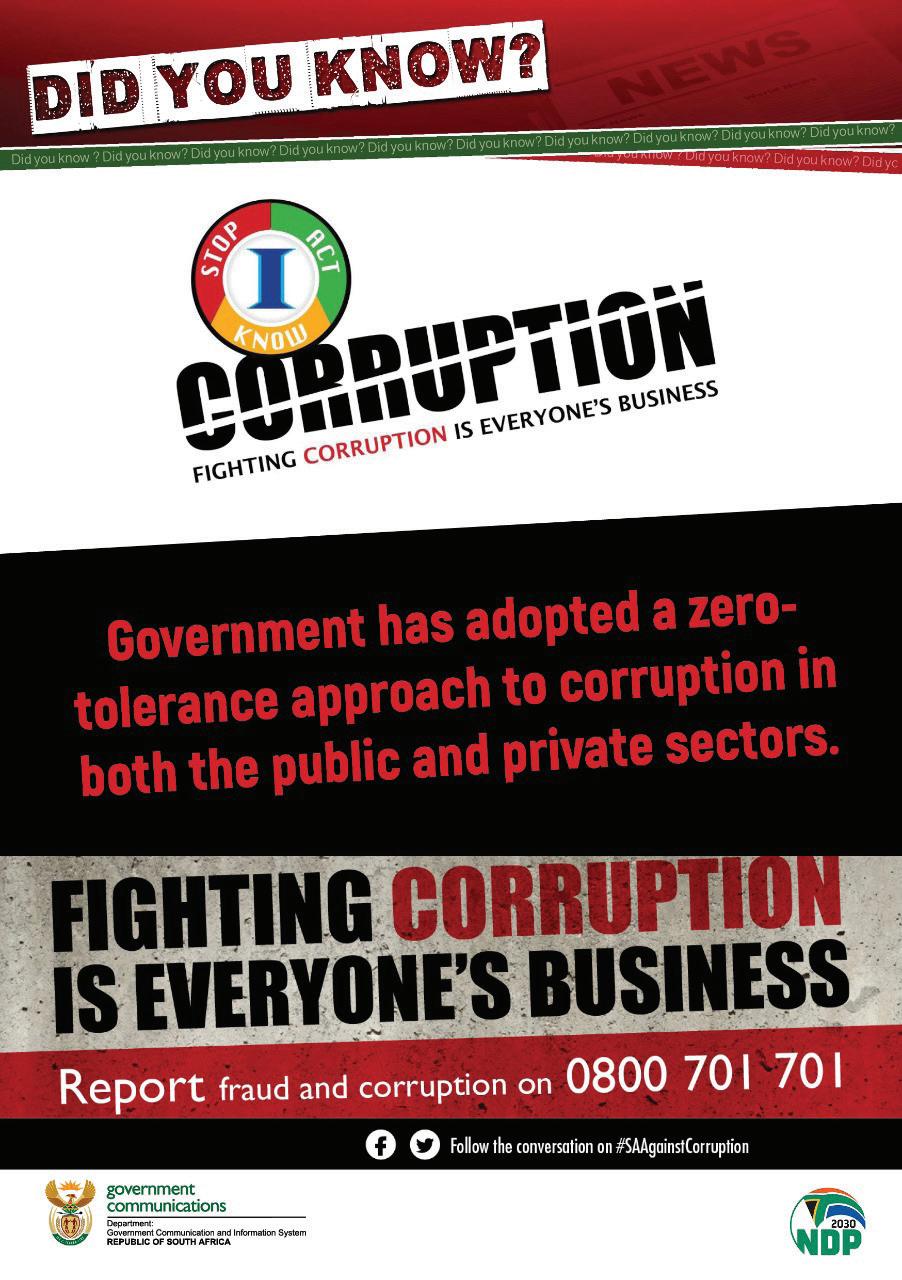
In search of the best among the best in responsible tourism? Look no further – the Witsieshoek Mountain Lodge is one of the best responsible tourism destinations.

This Free State establishment was the overall winner at the 2022 World Travel Market Responsible Tourism Awards. It also won gold in the Local Economic Benefit category at the same awards, beating 26 finalists from 21 countries. Nestled in the Northern Drakensberg Mountains in Phuthaditjhaba, the lodge boasts some of the best hiking trails in the country, including Sentinel Peak Trail and its Chain Ladders, the Mont-auxSources, the Amphitheatre, Eastern Buttress and parts of Maluti Mountains. All these are easily accessible from the lodge, making it the best accommodation for hiking and
outdoor enthusiasts.
The lodge offers affordable accommodation that’s ideal not only for hikers, but for families, and small or large groups.
Your choice of accommodation is from the cozy bungalows, the large sentinel rooms
with unrivalled views of the majestic Sentinel Peak and a backpacker’s cabin located just below the main reception area of the lodge that is perfect for backpackers on a budget.
All accommodation comes standard with buffet break-
fast at the panoramic Vulture Restaurant, a sufficient meal to sustain you for an adventurous day as you explore the wild and breathtakingly beautiful scenery.
In addition to hiking, visitors can enjoy rock climbing,
mountain biking, bird watching or even camping in the wild. There is an option of having a guide for hiking trails – to help with the deep knowledge of the area, its bird species, the rich flora and fauna, but most importantly its local communities made up of loving people. There is also a growing number of local mountain and bird guides who can help you find and identify the local birdlife. Originally built in the 1970s as State property, Witsieshoek Mountain Lodge is now owned by the Batlokoa community of King Morena Mota – after government gradually gave it over to the traditional council.
It is currently managed and marketed by the Transfrontier Park Destinations on behalf of Batlokoa, a partnership that was formed just as the community thought it was best to close the lodge down.
With an eye firmly focused on a viable and sustainable tourism model that balances the needs of the local community with those of nature, the lodge ensures that the bulk of its revenue remains within the community.
Batlokoa provide the majority of Witsieshoek Mountain
Lodge’s workforce. Local communities also benefited from the refurbishment of the lodge, with local seamstresses making curtains, a potter creating unique bedside light pieces and other décor items and home carpet weavers supplying bedside and décor rugs. With the skills gained from being trained partly by Witsieshoek Mountain Lodge, many of these businesses are still standing and supplying other tourism establishments in the area.
While you are at this holiday destination, you can visit the
local Tseseng village and meet wonderful traditional crafters and artists, and enjoy interesting elements of the Batlokoa culture, such as traditional music and oral poetry.
Since re-opening in 2011, the lodge has benefited the local economy to the tune of R77. 7 million and 46% of that resulted from local procurement policies and practices.


There is no better feeling than knowing that your vacation has helped develop the lives of the people and the Witsieshoek Mountain Lodge does just that.
